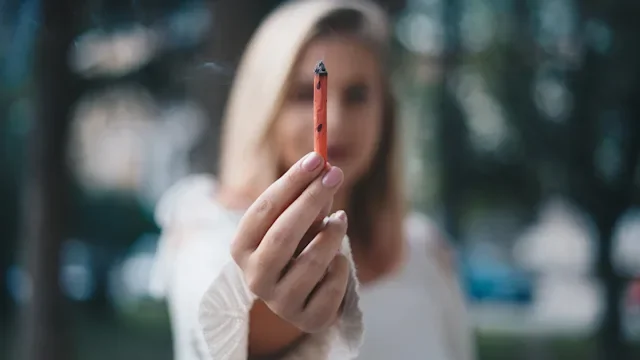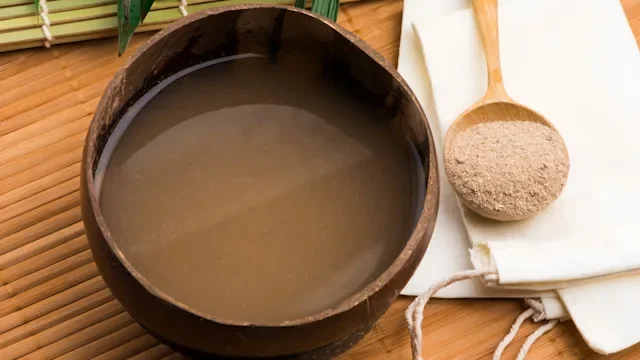Key takeaways:
Social distancing restrictions are loosening, and more opportunities for social engagements, travel, and holiday celebrations are available.
Vacations and holidays can make it difficult to maintain a routine that supports your sobriety.
Whether you’re starting your recovery journey or continuing it, take your recovery on vacation. Don’t take a vacation from recovery.
This summer, as states across the U.S. lift pandemic restrictions, you may find yourself having the opportunity to visit friends and family after long periods of separation. But what does this mean for people in recovery or those reconsidering their relationship with drugs or alcohol?
Here, we’ll discuss why this summer may be more challenging for folks in recovery. We’ll also go over some strategies you can implement to protect your recovery.
Why this summer is different for those in recovery
Like every time of year, summer brings unique benefits and risks to people in recovery. Research in the United Kingdom suggests that after December, alcohol use is highest in the summer. Also, teens and young adults are more likely to use alcohol or drugs for the first time during the summer months.
Search and compare options
This summer could present new challenges. The social response to the pandemic continues to change and allow for more freedom. It’s important to consider the impact of navigating these changes and the resulting stress that this can create. Change causes stress, and stress is a risk factor for recovery. Controlled stress can encourage growth and help us reach our goals.
Resiliency is our ability to navigate change and successfully manage stress without being overwhelmed. Think about how your recovery goals are impacted by these drastic societal changes. You may want to consider easing back into the new normalcy that is a result of vaccinations.
Prepare for the challenges of sobriety around friends and family
If you started your recovery journey in quarantine, you may find yourself in social situations with loved ones who are not aware of your lifestyle changes and may not know how to support them. Being mindful of the following may help if you take advantage of opportunities for summer travel excursions and to attend social engagements:
Think about what type of support you need and be clear with yourself and others about what you need to stay on track with your goals.
Talking to a mental health provider may be beneficial if you have difficulty clarifying your needs. A counselor can also help you learn about relapse prevention tools and discover which tools work for you.
Research shows that a strong support network is a key factor that increases your likelihood of reaching and maintaining long-term recovery of 2 years or more.
Be conscious of withdrawal symptoms
PAWS, or post-acute withdrawal symptoms, can last for several months or even years after last use, depending upon the type of drug used and the length and intensity of use. Symptoms can include:
Difficulty sleeping
Cravings
Irritability
Fatigue
Inability to enjoy activities
Read more like this
Explore these related articles, suggested for readers like you.
These and other uncomfortable symptoms may influence how you interact with the world around you.
These symptoms can increase or decrease over the first few months or even the first year of your recovery, and that’s normal. Remember, they won’t last forever. Don’t hesitate to talk to your doctor or therapist if you have concerns or questions about these or any other symptoms.
Be mindful of risk factors that may make sobriety more challenging
Summer presents opportunities that may make it easier or harder to resist using drugs or alcohol. Relapse, or a return to use, is often described as a three-stage process:
Emotional relapse
An emotional relapse has to do with how we feel about ourselves and our relationship to drugs and alcohol. Signs include:
Minimizing feelings
Lack of self-care
Isolating
Avoiding or not fully participating in treatment
Emotional relapse might show itself as someone ignoring phone calls or texts, skipping therapy sessions or support group meetings, or no longer following healthy routines.
Mental relapse
Mental relapse can occur when a person has decided to use a substance but has yet to do so.. It is characterized by:
Cravings
Minimizing past consequences of use
Lying
Planning to use drugs or alcohol
Examples of mental relapse can include talking about substances in a romantic way that minimizes the negative consequences, frequently talking about use or using, or making plans to obtain their drug of choice.
Physical relapse
Physical relapse occurs when a person has acted on their decision to use drugs or alcohol and drinks or uses their drug of choice. It is not until the last stage that an individual actually uses a substance.
As pandemic restrictions are lifting, it’s becoming easier to travel and see people. This means many of the isolation risks of relapse aren’t as present as they were during lockdown. Social support can be very helpful for people in recovery if the social groups are supportive of recovery goals. Our environment, the people around us, and ease of access to drugs or alcohol are all factors that can increase or decrease someone’s likelihood of experiencing a return to use.
Know when to seek help for a relapse
People in recovery may need additional help to meet their recovery goals. Some people find they are able to get back on track by connecting or reconnecting to self-help groups. Others may need to work one-on-one with a licensed therapist. And still others may need to go to inpatient treatment to stay connected to recovery.
Here are some questions to consider if you find yourself unable to maintain your sobriety:
Is it a lapse or a relapse? A lapse can be defined as a limited re-emergence of a problem behavior. A relapse is a return to a pattern of behaviors and lifestyle choices.
Where are you in the relapse process? If you can recognize where you are in the process, you can make decisions about what type of help you may need to access.
Do you have any withdrawal symptoms? These always need to be checked out by a doctor.
Can you follow your relapse prevention plan? Following a plan you made when you’re not under stress can be much easier than making decisions in a crisis.
Remember, a lapse doesn’t not have to mean a full return to use. It also doesn’t mean you or your treatment has failed. A lapse can be viewed as an opportunity to tweak your recovery plan and set new goals that incorporate what you have learned about yourself and your recovery needs.
Use available resources to help you stay sober
Understanding the risks summer can bring can help you plan to safeguard your recovery throughout the season. You may want to consider the following resources as you make plans to travel or otherwise relax your social distancing precautions.
Go to support group meetings on your cruise: Some cruise lines offer Alcoholic Anonymous (AA) meetings on their voyages, known as Friends of Bill meetings, which are named after the founder of AA, William Wilson. Contact your cruise line to see if this is offered on your sailing or check to see if they offer a sober sailing where alcohol is not served onboard.
Count your calories: Keep track of the calories or money saved by not drinking using a calculator to stay motivated and on track with your sobriety goals.
Consider a sober vacation: A travel agent or online search may surprise you with how many options are available for sober travel or simply plan your own substance-free adventure.
Try virtual self-help: Look into virtual self-help meetings to stay connected with the recovery community while you travel. There are also plenty of helpful apps for recovery.
Plan your medications: If you take medications as part of your recovery plan, ensure you have enough to travel and a plan in place if your medications are lost and need to be replaced.
Use telehealth while on the road: Telehealth visits may be an option to continue any therapy sessions or to avoid missing doctor appointments while you travel.
The bottom line
Summertime presents both opportunities and challenges for people in recovery. Social activities can help with isolation, and warmer weather can allow for healthy outdoor activities. But summertime also carries risks for excess use or a return to use. Holiday celebrations, changes in routines, and travel plans can increase access to drugs and alcohol and make it difficult to stay connected to your recovery network. Understanding how the upcoming summer could impact your recovery journey can help you take advantage of the season’s opportunities and lessen potential risks to help you stay on track with your recovery.
If you or someone you know struggles with substance use, help is available. Call SAMHSA’s National Helpline at 1-800-662-HELP (4357) to learn about resources in your area.

Why trust our experts?


References
Alcoholics Anonymous. (n.d.). Alcoholics Anonymous.
Center for Substance Abuse Treatment. (2010). Protracted withdrawal. Substance Abuse Treatment Advisory.
Cruise Critic. (2020). What is Friends of Bill W. on a cruise?.
Guenzel, N., et al. (2022). Addiction relapse prevention. StatPearls.
Johnson, B. R., et al. (2018). Alone on the inside: The impact of social isolation and helping pthers on AOD use and criminal activity. Youth & Society.
Laudet, A. B., et al. (2002). Pathways to long-term recovery: A preliminary investigation. Journal of Psychoactive Drugs.
Melemis, S. M. (2015). Relapse prevention and the five rules of recovery. The Yale Journal of Biology and Medicine.
Rethinking Drinking. (n.d.). Calculators.
Sinha, R. (2008). Chronic stress, drug use, and vulnerability to addiction. Annals of the New York Academy of Sciences.
Substance Abuse and Mental Health Services Administration. (2012). Monthly variation in substance use initiation among adolescents. The National Survey on Drug Use and Health Report.
Substance Abuse and Mental Health Services Administration. (2013). Resilience annotated bibliography - SAMHSA's Partners for Recovery Initiative.
Substance Abuse and Mental Health Services Administration. (2021). Staying connected is important: Virtual recovery resources.
Substance Abuse and Mental Health Services Administration. (2022). SAMHSA's national helpline.
Uitenbroek, D. G. (1996). Seasonal variation in alcohol use. Journal of Studies on Alcohol.















